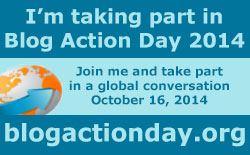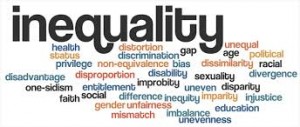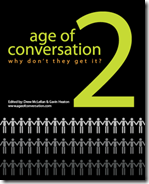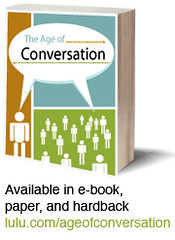Today is Blog Action Day 2014, and the topic is “inequality.” My first thoughts about this topic are about former U.S. Cabinet Labor Secretary (under President Bill Clinton) and current Professor of Public Policy at the University of California at Berkeley Robert Reich’s blog posts, Tumblr log, books, and recent film, Inequality for All, which is now available on Netflix, iTunes, DVD, and On Demand. If you haven’t read any of Reich’s recent posts, his books, or seen this film, directed by Jacob Kornbluth, I strongly recommend doing so, whether or not you agree with Reich. He addresses one of the most pressing issues of our time, and how inequality in income and earning potential of citizens affects our “free market,” capitalism and democracy, as defined in the United States. His ideas, though, are relevant on a global level, outlining how the impact of inequality will ultimately affect the shared economy of the entire world. One of Reich’s key tenets is that if the so-called middle class’s income is being constantly eroded, they are also our chief consuming class, and if they no longer have as much “disposable” income to spend, businesses will lose revenue and will ultimately fold — which includes local, small businesses, as well as major corporations that rely on profits from middle class consumers.
Even if you disagree with part or all of Reich’s proposed solutions to this problem, if you are truly interested in joining the conversation about the future of democracy and capitalism in the U.S., you owe it to yourself to at least listen to his definitions of the problem and potential solutions. We will find no bipartisan solutions unless we really hear what’s at stake for all whose lives and contributions to our economic life and society are considered. This means hearing from representatives of the invisible, under-represented and under-considered in our democracy. The first step in solving any large-scale problem is defining what that problem is — which means asking real, relevant questions and LISTENING for authentic responses from all involved, not just one’s own faction.
When I think about the word “inequality,” and how complex and challenging a problem it is, what really comes to mind are other words, such as “injustice,” “diversity,” “respect,” “empathy,” “compassion,” “collaboration,” and “sharing economy.” If we do not take an in-depth look at the multiple meanings of those other words, we aren’t really addressing “inequality,” because inequality is based on our shared understanding of the meanings of those other words. As we discussed in a recent Twitter #innochat on the language of innovation — “shared language” and “innovation” are other key words in this conversation — innovators must come to a shared understanding of terminology and language to be used before an innovation project can go forward effectively. If we look at the problem of “inequality” as a huge social innovation and collaboration project, then we need to make a deeper, more diligent effort at defining a shared meaning of these words. Beginning any conversation about inequality by slamming the “other side” or people with whom you disagree, by engaging in derogatory, partisan name-calling is akin to putting your head in the sand and pretending the problem doesn’t really exist, or will simply go away on its own.
Throughout human history, inequality has persisted, and has usually been upheld by those with the most wealth, clout and political power. Ultimately, as we have seen throughout history, the oppressed, enslaved or otherwise disenfranchised members of the inequality equation have eventually risen up and fought back. Sometimes propelled by religious ideals, the methods of the rebellions have included riots, revolutions, terrorist actions, executions, and formation of new countries. Unfortunately, rebellion by peaceful means, as espoused by Gandhi, Martin Luther King, and others, has only seemed to work in some circumstances in history. In our increasingly weaponized world, the disenfranchised are relying more and more on violent methods, including terrorism. If we consider the entire sweep of human history, and attempt to take a long view into the future, we must notice that the socially and economically disenfranchised of almost every major world religion have demonstrated use of any or all of these means of rebellion — and we can only conclude that violent responses to inequality will probably occur again, in any country, in the name of any religion, by ad hoc groups of people who feel they drew the short end of the stick in their home country’s economy, culture, and social standing.
If we are each bold enough to consider ourselves social innovators — and that is, indeed, a very bold step — we might begin by asking some basic questions, such as:
1) How might we avoid inciting or creating the conditions for violence, terrorism and destruction in our own, or anyone’s, approach to solving problems of inequality and injustice?
2) How might we all begin from an attitude of compassion and empathy for all others, even those who seem very different from ourselves, including the poorest and most vulnerable in our society? How might we raise our children so that they begin life from a place of openness, empathy and compassion for all others, including all people and animals?
3) How might we keep experimenting with democracy and a capitalist economy so that we retain as many of our freedoms as possible without further disadvantaging those who are less fortunate than us? How might we update our ideas about capitalism to create an environment where all people are respected, and no one feels “invisible” or left out?
4) We have seen that past experiments with communism, fascism, dictatorships and other social and economic systems have failed for a majority of their citizens; but are we willing to keep examining how our capitalist system is failing some, while benefiting others excessively? Are we open to keep experimenting and re-prototyping our capitalist systems so that they can include and work for everyone, without exploiting any classes of people — or animals (if you believe, as I do, that almost all species of animals in the world have been harmed or exploited under all economic systems)?
5) How might we provide ALL citizens with opportunities to improve their lives, get a good education, and be able to move to a respectable career path, with fair wages that enable them all to live in decent housing, eat and have access to quality health care, as well as ongoing education, mentoring and job training, without incurring burdensome levels of student debt? If our mindset is from a place of empathy and compassion, then we should be interested in making the free market, aka capitalism, work for everyone. That is where the values of a true democracy and capitalism intersect, especially as our forefathers defined those terms in the United States. We may need to look to other countries, as well, for examples of success, so we can all keep learning from each other. This means that we need to have an open mindset, and not an arrogant one, that we “know it all” already.
6) How might we create a viable and just path to citizenship for all immigrants who are willing to engage on that journey? How might we decriminalize the word “immigrant,” and instead, use our compassion and empathy to listen and truly understand what immigrants need to feel fully included in our society and economy? If capitalism is supposed to work for everyone, there should be no room for an outdated mindset that one group of people is taking job opportunities away from another group of people — if we are going to continue to be a democratic country based on capitalism and “free market” principles, then clearly, we need to find ways to update capitalism so it works for and includes everyone. If it isn’t working for everyone, and only works for a selected few, then capitalism really isn’t working, and we should admit it, and update the way we practice it.
There are many other questions we might ask — and as all innovators know, we must keep challenging the status quo. We may make incremental changes, or we may end up disrupting the system, if that’s what it takes to make our world work for everyone. We may end up finding that all-out transformation of at least some parts of our systems are necessary, to resolve the problems of inequality — if that is the case, so be it.
I am encouraged to see that more entrepreneurs and other people are experimenting with different forms of enterprises, such as social entrepreneurship, corporate social responsibility programs, merging and re-thinking nonprofits and philanthropic institutions, and designing social innovation initiatives that cross boundaries between the “for profit” and “nonprofit” worlds. We’re also seeing more needed collaborations between business sectors and government agencies, and between industries. Increasingly, open innovation projects and partnerships are being formed between companies that previously were competitors — “collaboration” is the new “competition,” and we are seeing that collaboration can open up new opportunities where everyone profits. This involves transforming our emphasis on competition in capitalism, as we all reap the benefits of creating shared value.
We now have university majors that encourage the development of social enterprises, with “triple bottom line” goals of profit, sustainability, and social good. One of the biggest movements right now is the “sharing economy,” putting collaboration and consumer power on an equal footing with competition as a business model. I find all of these to be very hopeful directions in the ultimate solution of our inequality problems. Until we open our minds up to embracing bold new experiments along these lines, we will continue to live in constant strife, where almost everyone is impacted by the negative results of inequality in our society, both at home and in the global economy.
For more information about inequality on a global level, here is a collection of video clips from Blog Action Day 2014:
We need to keep asking the big, hairy questions, individually as well as in our politics and business communities — i.e., what can I do today, and going forward, to help solve the inequality problems of our time?
What can I contribute to the future, as an innovator in my culture, country, and as an informed, empathetic and compassionate world citizen?
How do I need to LISTEN more and understand others, so I am truly a global citizen who is prepared to move forward toward a better life for all of us, today and in the future?
What other questions can you think of, to ask yourself and your community about solving the problems of inequality? Please feel free to ask them below, or offer a constructive comment that is respectful of all in our community.
Thank you for joining the Blog Action Day 2014 conversation by reading this post. Let us all continue this vital conversation respectfully, wherever and whenever we can, in all the online and in-person public places of the world.
Return to the Cathryn Hrudicka & Associates Home Page

























